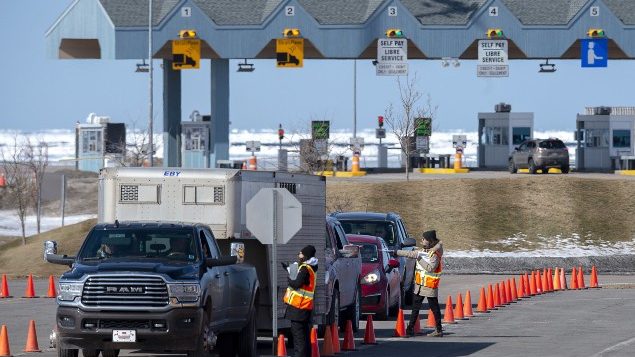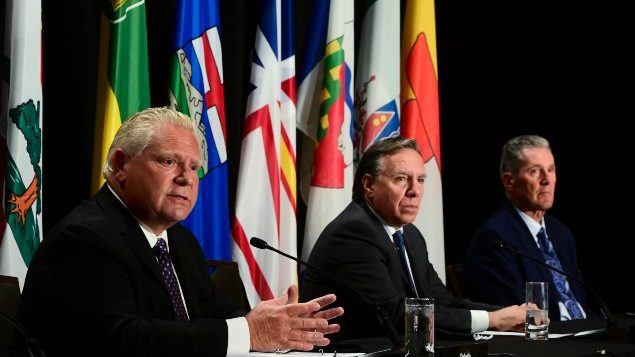Most of the premiers of Canada’s 10 provinces retain the trust of the majority of their populations, according to a recent survey, but trust for some is declining as rates of COVID-19 infection increase.
Canada is a federation and it is the provinces and territories which have jurisdiction over the delivery of health care and public health measures. Each province has its own way of dealing with the pandemic and setting out restrictions to try to control the rate of infection. There have been dramatic differences in what the premiers of each province each government have done and dramatic differences in the results.
In the spring and summer months, the approval rating of most premiers was positive, according to surveys done in February, May and August by the profit polling firm, Angus Reid Institute. But a survey in November suggests support for many premiers has declined.

Several provinces obliged people to wear masks inside public places. (iStock)
Manitoba has fastest spread of the coronavirus
Garnering the lowest approval rating is the Premier of Manitoba (MB on the graph) Brian Pallister. He received the approbation of only 32 per cent of respondents and that was a drop of 12 points from the last quarter. His province is experiencing the fastest spread of the coronavirus in Canada and his government has imposed some of the strictest lockdown measures.
The next lowest approval rating went to Jason Kenney, premier of the province of Alberta (AB). He garnered a 40 per cent approval rate as his province suffers the worst outbreak in the country. He is the only premier to not mandate the wearing of masks indoors suggesting that would provoke a backlash from the population. He has also been criticized for singling out the South Asian community for having new cases without mentioning others who have been defying rules restricting the size of gatherings.
The approval rating for the Premier of Ontario Doug Ford (ON) was high in the early days of the pandemic. From a high of 69 per cent in May, the rate dropped to 55 per cent in November. This reflected an steep increase in infections and hospitalizations particularly in Toronto and the nearby Peel region. People have protested lockdown measures and Ford recently called them “buffoons.”
Quebec leader maintains high approval in spite of province’s highest infection rate
In Quebec (QC), Premier Francois Legault maintains a high approval rating of 64 per cent even though the rates of infection and death per capita are the highest in Canada. Early on, Legault obliged people to wear masks indoors and he has closed many public places and severely limited group sizes.

The four Atlantic provinces decided to ease travel restrictions between them creating the so-called Atlantic bubble. (Andrew Vaughan/The Canadian Press/March 22, 2020)
Atlantic premiers have approval of more than half
The four Atlantic provinces have had the lowest levels of COVID-19 infection partly because of a low population density but also the early adoption of a “bubble” comprised of the Newfoundland and Labrador, New Brunswick, Nova Scotia and Prince Edward Island. People were allowed to travel between these provinces without quarantining but not from outside them. The bubble recently burst because of an increase in infections in the province of New Brunswick. The three premiers rated maintained high levels of approval: 53 per cent for Andrew Furey of Newfoundland and Labrador (NL), 62 per cent for Stephen McNeil of Nova Scotia (NS) and 63 per cent for Blaine Higgs of New Brunswick (NB). Because of its small population size, data from the province of Prince Edward Island was not released.
A tie with Quebec’s premier for the highest approval rating of 64 per cent went to the Premier of British Columbia (BC) John Horgan. His province wrestled infection levels into a holding pattern through the summer. In spite of a recent spike in cases and new restrictions, his approval rating dropped only five points from August.







For reasons beyond our control, and for an undetermined period of time, our comment section is now closed. However, our social networks remain open to your contributions.